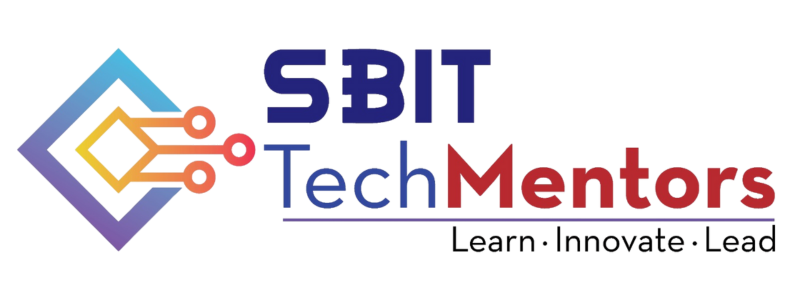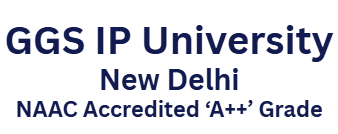Master AI: Building Smarter Solutions with
Deep Learning
PG Level Advanced Certification Programme in
Artificial Intelligence and Deep Learning
Exclusively designed for professionals in Science, Engineering or Mathematical Sciences

Only NAAC A++ govt University Programme

Physical & online classes

9 Months Immersive Learning
Mentoring by industry experts

IP University Alumni status
Artificial Intelligence and Deep Learning is the Future.
One in 10 cars will be self- driving by 2030
Forbes
Gen AI applications stand to add up to $4.4 trillion to the global economy-annually
McKinsey
We're striving for human- centric AI development: PM Modi
Economic Times
AI is projected to contribute $15.7 trillion to the global economy by 2030
National University, USA
"AI innovation is happening at a rapid pace, with an above-average number of technologies on the Hype Cycle reaching mainstream adoption within two to five years"
Gartner
Generative AI presents a powerful tool for innovation and creativity which could be leveraged to solve some of the world's most pressing challenges, such as climate change, healthcare, and education
Bill Gates
Trending Career Opportunities in Artificial Intelligence and Deep Learning
About The Programme
The Certification Programme in Artificial Intelligence and Deep Learning is offered by SBIT TechMentors in collaboration with IP University. It is a 9 month programme that enables both aspiring and practicing AI/ML professionals to build expertise in Deep Learning. The programme covers the essential theoretical foundations of deep learning and teaches students how to apply them in the real world effectively. The Programme is best suited for individuals with programming knowledge who want to create a practical understanding of how machine learning algorithms can be developed and optimized for hardware.
Certificates will be given by GGS IP University, New Delhi, India

What is unique about TechMentors Artificial Intelligence and Deep Learning Programme ?
High Impact Format:
 Hybrid Learning Environment: Classes conducted in classrooms by distinguished faculty.
Hybrid Learning Environment: Classes conducted in classrooms by distinguished faculty. Hands-On Labs: Include lab sessions where participants build and train AI models using real datasets.
Hands-On Labs: Include lab sessions where participants build and train AI models using real datasets. Projects: Assign real-world projects that require applying AI techniques to solve practical problems, including data collection, model development, and evaluation.
Projects: Assign real-world projects that require applying AI techniques to solve practical problems, including data collection, model development, and evaluation. Case Studies: Analyze industry-specific case studies to understand AI applications in various sectors like healthcare, finance, and retail.
Case Studies: Analyze industry-specific case studies to understand AI applications in various sectors like healthcare, finance, and retail. Easy Access to Faculty: Dedicated faculty hours to address doubts and questions.
Easy Access to Faculty: Dedicated faculty hours to address doubts and questions.
Industry Focussed:
-
 Mentorship Board: Distinguished veterans from Industry and Academia part of the Mentorship board to guide us.
Mentorship Board: Distinguished veterans from Industry and Academia part of the Mentorship board to guide us. -
 Hackathons: Regular hackathons aligned to industry demands.
Hackathons: Regular hackathons aligned to industry demands. -
 Collaboration with Industry Experts: Guest lectures by our mentors and other industry experts to provide insights into the current trends.
Collaboration with Industry Experts: Guest lectures by our mentors and other industry experts to provide insights into the current trends. -
 Industry Talks: Sessions from our mentors and other experts on the latest trends.
Industry Talks: Sessions from our mentors and other experts on the latest trends. -
 Industry-Relevant Curriculum: Real-world applications of AI in various industries like healthcare, finance, manufacturing, etc., ensuring the content aligns with market demands.
Industry-Relevant Curriculum: Real-world applications of AI in various industries like healthcare, finance, manufacturing, etc., ensuring the content aligns with market demands.
Get Capital Advantage
The campus of the Institute is spread over 20 acres of plush green land in NCR Delhi. Delhi NCR is the number of high-end national and multinational companies that have their presence in the region. The students get the time and opportunities to interact in order to broaden their industrial experience. Being in the heart of the Indian capital, the students get job offers from some of the most renowned firms in their fields.
Why Now ?
Data Analysts and Scientists, Al and Machine Learning Specialists predicted to be the top jobs in demand by 2025
The World Economic Forum
More than 1 lakh new Data Science job openings expected in India by 2025
Analytics Insight
Data Science and Al expected to drive investment decisions by 2025
Gartner, Inc2
Al could contribute up to USD 15.7 trillion to the global economy by 2030
Pricewaterhouse Coopers
Al professionals are getting 60-80% hikes while switching jobs, compared with an average of 20-30% in other skill areas
The Economic Times
An entry-level Al role can command a 70%-plus premium over a computer science engineer
The Economic Times

Next Gen
Learning System
TechMentors’s Digital Delivery Platform has been architected to incorporate best-of-breed technologies and state-of-the-art components. This innovative learning platform stands out by offering a comprehensive, unified digital environment that brings together multiple educational technologies. By providing a single access point, it effortlessly supports various learning modes - whether real-time or self-paced - and includes features like collaborative assignments, interactive assessments, group projects, cloud-based laboratories, and advanced video learning tools. The result is an intuitive, user-friendly experience that enhances engagement for both learners and educators.
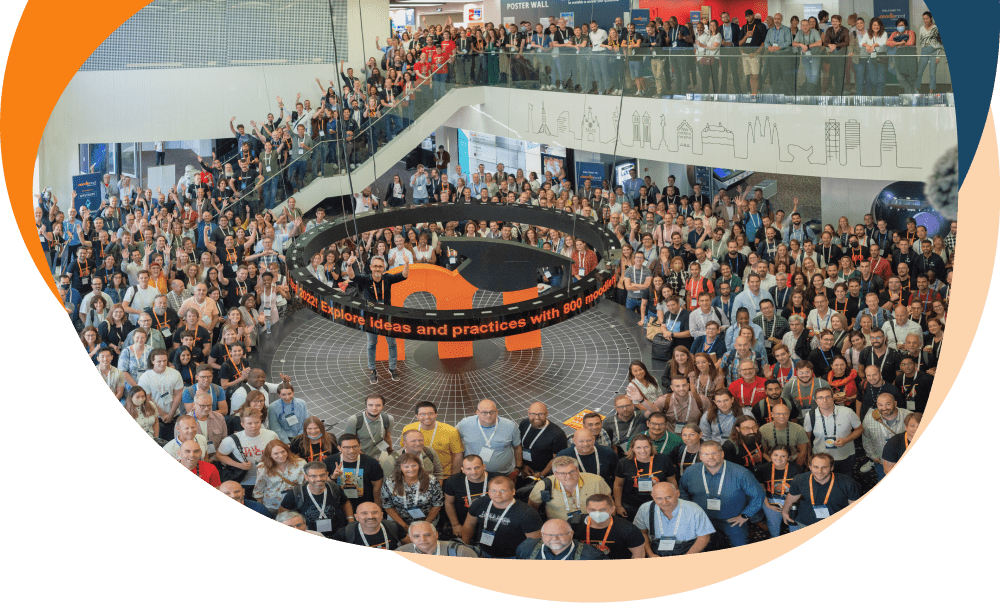
Key Features of the Programme
Immersive Learning for Experienced Professionals
Experiential Learning
Hands on Project,Case studies and Practical Exercises
Interactive Content
Multimedia elements like videos,interactive modules and quizzes that require active participation
Real-World Tools and Platforms
Access to industry standards AI tools , libraries platforms
Industry Collaborations
Partner with AI companies and research institutions
Periodic Assessment
Adaptative learning technolgies to tailor assessment to learning path and needs
Campus Immersion Experience

On-Campus Evaluation
Hands-on assessments, presentations, and practical tests during the campus immersion to evaluate application of knowledge.

Campus Resources
Use campus facilities such as laboratories, conference rooms, and collaborative spaces for hands-on activities and workshops.
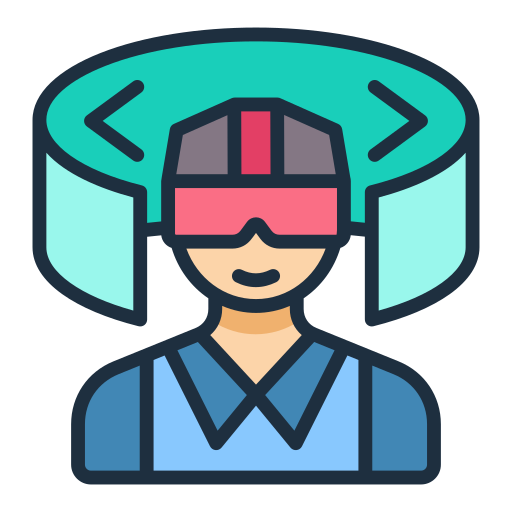
Immersion Period
Decide on the duration of the campus immersion (e.g., a few days, a week) and schedule it to complement the online coursework.
Master The Essential Techniques of AI & Deep Learning

Mathematical Foundations

AI & Data Science Libraries
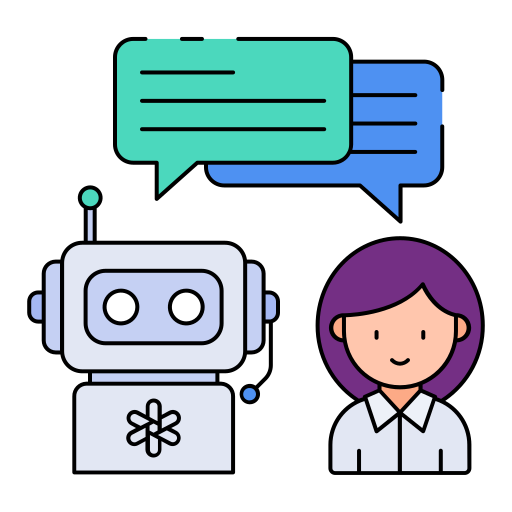
AI & ML Principles
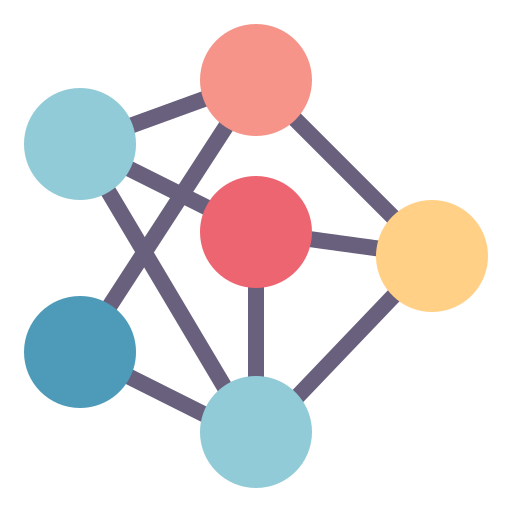
Neural Networks with TensorFlow & PyTorch
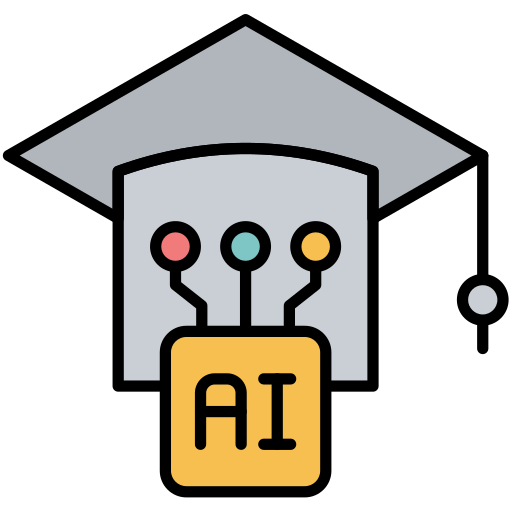
Advanced Deep Learning

Real-World Applications
AI and Deep Learning Programme Curriculum
- Google Colab
- Basic mathematics: Matrix, Calculus, Probability
- Introduction to Python Programming
- Python Data Types and Operators
- Conditional Statements and Loops in Python
- Python Functions
- Object-Oriented Programming Concepts with Python
- Threading
- Matplotlib, NumPy, Pandas, Sci Kit Learn
- Data preprocessing, Data Cleaning/Munging
- Overview of Google Colab environment for using Jupyter notebooks
- Understand Python concepts such as strings, lambda expressions, lists, functions, and error handling
- Gain proficiency in Python libraries such as NumPy, pandas for handling data
- Construct informative graphs using Matplotlib, Seaborn, and Plotly
- Calculus Fundamentals
- Derivatives and Partial Derivatives
- Composite Functions and the Chain Rule
- Automatic Differentiation
- Gradient Descent and Backpropagation
- Deep Dive into Linear Algebra
- Linear Algebra Concepts
- Vectors, Bases, Dimensions, Norms
- Matrices and Matrix Operations
- Eigenvalues, Eigenvectors, and Eigen decomposition
- Statistics
- Descriptive Statistics
- Statistics Topics
- Probability
- Probability and Probability Distributions
- Sampling and Sampling Techniques
- Inferential Statistics
- Data Visualization
- Gain familiarity with linear algebra concepts
- Fundamentals of eigenvalues, eigenvectors, and eigen decomposition
- Fundamentals of probability concepts like independent and dependent events, Bayes’ Theorem, sampling methods
- Introduction to hypothesis testing
- Data Stories and Data Visualization
- Introduction to Artificial Intelligence and Machine Learning
- AI/ML Workflow, AI/ML Applications and Problems it can solve
- Regression Models
- Regression Deep Dive
- Model Building
- Least Squares, Model Accuracy & Selection
- Regularization and Overfitting
- Interpretability of Regression Models
- Classification Models
- Classification Algorithms
- Logistic Regression
- Nearest-neighbor Methods
- Naive Bayes Classifier
- Decision Tree and Random Forests
- Evaluation Metrics
- MSE, Accuracy, Precision, Recall, F1 Score
- Metrics Deep Dive
- Boosting Models – XGBoost, Light GBM
- Unsupervised Learning
- Unsupervised Techniques
- Clustering: K-Means, Hierarchical, Density-based
- Association Rule Mining, Apriori Algorithm
- Anomaly Detection
- Overview of Artificial Intelligence landscape including workflows and applications
- Comprehensive coverage of different machine learning algorithms and their working
- Understand the difference between supervised and unsupervised learning and their respective real world applications
- Coverage of different types of regression models and their applications
- Understanding of the concepts of overfitting and underfitting and how to prevent them
- Coverage of different types of classification algorithms and their applications
- Create correlation maps between variables
- Examine various ensemble modeling techniques such as bagging, boosting, and stacking
- Introduction to different machine learning frameworks like Keras and TensorFlow
- Introduction to Neural Networks
- Multi-Layer Perceptrons (MLP) and Backpropagation
- Regression / Classification with MLP
- Pytorch, Tensorflow, and Keras
- Fine Tuning of MLP
- Gradient Issues
- Activation functions, Batch Normalization
- Overfitting and Dropouts
- Optimizers and Learning Rate
- Understand the differences between deep learning and machine learning
- When to use deep learning and practical applications
- Comprehensive coverage of fundamental neural networks – Multi-Layer Perceptrons (MLP)
- Gain expertise in the concepts of forward propagation and backward propagation in neural networks
- Introduction of modeling and performance improvement techniques in deep learning
- Understand hyperparameter tuning and model interpretability
- Overview of dropout and early stopping techniques and their implementation
- Understand the basics of PyTorch and learn how to create a neural network using PyTorch
- Convolutional Neural Networks (CNN)
- Filtering, Convolution, Pooling
- Different Architectures: U-net, Resnet, etc.
- Classification, Localization, Segmentation
- Recurrent Neural Networks
- Sequence Modeling, Memory Cell
- GRU, LSTM, Gradient Issues
- Recommendation Systems
- Dimensionality Reduction and Self-Supervised Networks
- PCA, Matrix Completion, LDA, CCA
- Manifold Learning, t-SNE, LLE
- Auto-encoder Architectures
- Extensive coverage of advanced neural networks like CNNs and RNNs
- Overview of advanced concepts like filtering, convolution, and pooling
- Introduction to advanced architectures like U-net and Resnet
- Understanding GRU, LSTM, and gradient-related issues
- Building recommendation systems using neural networks
- Understanding dimensionality reduction with PCA, t-SNE, LLE, etc.
- Coverage of auto-encoder architectures and applications
- Natural Language Processing
- Data Preprocessing for NLP – Text Vectorization Layer, Standardization, Vocabulary Indexing, Embedding Word Vectors, TF-IDF
- Tokenization, Byte Pair Encoding, Bag of Words Model and Sequential Models, Attention Mechanism, BERT Models
- Generative AI – GPT, LLMs (OpenAI API, ChatGPT, Llama), RAG, LangChain
- Speech and Audio Processing
- Audio Representations, Speech Recognition
- End-to-end Deep Networks, Detection Models
- Computer Vision
- Transfer Learning, Object Detection
- Image Segmentation RNN, Image / Video Captioning
- Extensive coverage of Natural Language Processing including data preprocessing and key text preprocessing techniques
- Application of text vectorization and embedding methods, use TF-IDF for word importance in documents
- Understand tokenization methods and Byte Pair Encoding (BPE)
- Explore attention mechanisms and BERT
- Learn about GPT and Large Language Models (LLMs)
- Use OpenAI API, ChatGPT, and Llama for NLP tasks
- Understand RAG and utilize LangChain for custom NLP pipelines
- Extensive coverage of Audio Representations and Speech Recognition
- Extract features for speech recognition tasks
- Develop deep learning models for speech and audio
- Understanding of Computer Vision concepts like Transfer Learning and Object Detection
- Understand image segmentation and RNNs in captioning
- Image based plant disease identification
- Smart Traffic Management System
- Personalized Financial Advisor using Large Language Model (LLM)
- Personalized Health Monitoring System
- Movie recommendation system based on user preferences
- Fraud Detection in Financial Transactions
- House price trends and prediction for metropolitan cities of India
- Real-Time Speech Translation System
- Anomaly detection in Industrial IOT
- Showcase your Deep Learning skills starting from decision making process and covering other areas like data processing, model development, and results presentation
SBIT EDGE
Shri Balwant Institute of Technology (SBIT), established in 2006, is an AICTE approved Engineering and Management Institute located in NCR Delhi and Affiliated with Guru Gobind Singh Indraprastha University (GGSIPU), New Delhi. SBIT offers full time Undergraduate and Postgraduate degree programmes in Engineering, Management and Computer Applications – B.Tech, BBA, MBA, BCA, MCA, B.Com.(H). SBIT programmes are meticulously designed to equip students with the latest skills and knowledge, particularly in the high-demand fields of Artificial Intelligence (AI), Deep Learning, Cyber Security, IoT.
Recognized among the Top 10 Colleges in India for AI, SBIT is renowned for its academic excellence and state-of-the-art infrastructure. Over the last 19 years, SBIT has established a strong legacy of producing thousands of successful engineers and managers who have been placed in top companies like Apple, Amazon, Adobe, BCG, Infosys, TCS and Deloitte across the globe. The Institute’s rigorous academic programmes combined with hands-on industry training and corporate mentorship from global leaders, have ensured that students are not only technically proficient but also equipped with the skills to excel in the professional world.

IP University EDGE
Guru Gobind Singh Indraprastha University (GGSIPU), established in 1998 by the Government of NCT of Delhi, is a State University of Delhi recognized by the University Grants Commission (UGC). The University is also globally recognized for its academic and research excellence and has earned prestigious accolades which include NAAC A++ Accreditation, the highest honour for academic distinction; a strong position in the QS World University Rankings 2025, securing 81st rank in Southern Asia; and a notable 80th position in the NIRF Rankings 2024. The University’s rapid stride in global rankings has been acknowledged with the QS ‘Rising Star’ Award, while its unwavering commitment to research excellence has been honoured with the QS ‘Performance Improvement Award’, reaffirming its excellence in higher education.

Artificial Intelligence Programme Fee
What is My Investment?
Application Fee
₹1,000
Programme Fee
₹1,50,000
Programme Fee with Scholarship
₹1,30,000
 Check my eligibility for the scholarship
Check my eligibility for the scholarship
(18% GST extra as applicable)
![]() Special Pricing for Corporates*
Special Pricing for Corporates*
*Applicable only for enterprises nominating their employees as a group
Fees paid are non-refundable and non-transferable.
Modes of payment available
![]()
Internet Banking
![]()
Credit/Debit Card
![]()
UPI Payments

Who Should Enroll in this programme?
The programme is designed for working professionals in mid- to senior management roles who want to build their expertise in data science, machine learning, and artificial intelligence. It is particularly suited for decision-makers who want to leverage data-driven insights and AI techniques to enhance their strategic and operational capabilities
Is this programme ideal for me?
🔹 Mid to Senior-level managers looking to effectively lead end-to-end DS, ML & AI projects and solve complex business problems.
🔹Consultants looking to build their DS, ML & AI expertise for better client management.
🔹 Entrepreneurs and Small Business Owners looking to restructure their business strategy by incorporating DS, ML & AI into their products/applications.
Eligibility Criteria
🔹Education: Bachelors (four/ three years or equivalent) or Masters in Science / Engineering / Management
🔹 Work Experience: Nil. Preference will be given to candidates with Min 1 year of experience. Final year students with strong programming skills can also apply.
🔹 Coding Experience: Programming Knowledge Required
How Do I Enroll in the Programme?

Submit Application
Tell us a bit about yourself and why you want to do this Programme

Application Review
An admission panel will shortlist candidates based on their application

Join the Prestigious Program
The admission office will send the letter of acceptance. Submit the admission fees in due time to confirm the seat
Programme Outcomes
This programme is designed to provide you with a strong foundation in AI and deep learning, preparing you for a successful career in this transformative field.
Learning Path
-
🎥
Live Learning: Interactive classes with industry experts for hands-on learning.
-
📊
Case Studies: Real-world tasks to solidify knowledge and prep for industry challenges.
-
🧑🏫
1:1 Counselling: Personalized mentorship for career navigation and professional decisions.
-
❓
Doubt Clearing Sessions: Targeted sessions to ensure clarity and readiness for next steps.
-
🏆
Capstone Projects: Final projects that blend learning with real impact in your field.
HOW WILL I LEARN?
 Live Interactive Classes: by industry experts & senior professionals
Live Interactive Classes: by industry experts & senior professionals Capstone Projects: Industry Sessions & Campus Visits
Capstone Projects: Industry Sessions & Campus Visits Weekend Classes: every Saturday (10:00 AM – 1:30 PM & 2:30 PM – 5:30 PM)
Weekend Classes: every Saturday (10:00 AM – 1:30 PM & 2:30 PM – 5:30 PM) Placement Assistance
Placement Assistance Lifetime Access: to Course Material
Lifetime Access: to Course Material Doubt Clearing: Available on All Weekdays
Doubt Clearing: Available on All Weekdays Scholarships Available
Scholarships Available 3 Days Campus Immersion: at SBIT
3 Days Campus Immersion: at SBIT Industry Projects: for Hands-on Experience
Industry Projects: for Hands-on Experience 1:1 Mentoring Sessions
1:1 Mentoring Sessions Master Classes: with Industry Experts
Master Classes: with Industry Experts Community Forums: to Connect & Share Insights
Community Forums: to Connect & Share Insights
Tools Covered
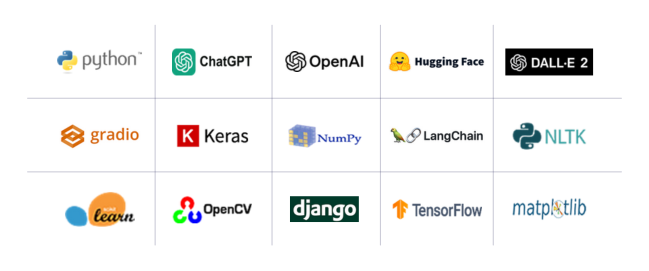
Why Artificial Intelligence and Deep Learning?
Rapid advancements in AI and deep learning technologies are driving innovation across various industries, necessitating a skilled workforce to develop and manage these cutting-edge solutions. As companies in sectors such as healthcare, finance, retail, and transportation increasingly adopt AI to enhance efficiency and customer experiences, the need for expertise in these areas has grown. The explosion of data from sources like social media and IoT devices has created a demand for sophisticated analysis methods, with AI and deep learning being pivotal in extracting valuable insights and making informed decisions. A career in Data Science and AI will help you gain a first-mover advantage on nascent industry trends, make impactful applications possible, and apply tangible results to solve complex business problems.
Programme Certificate
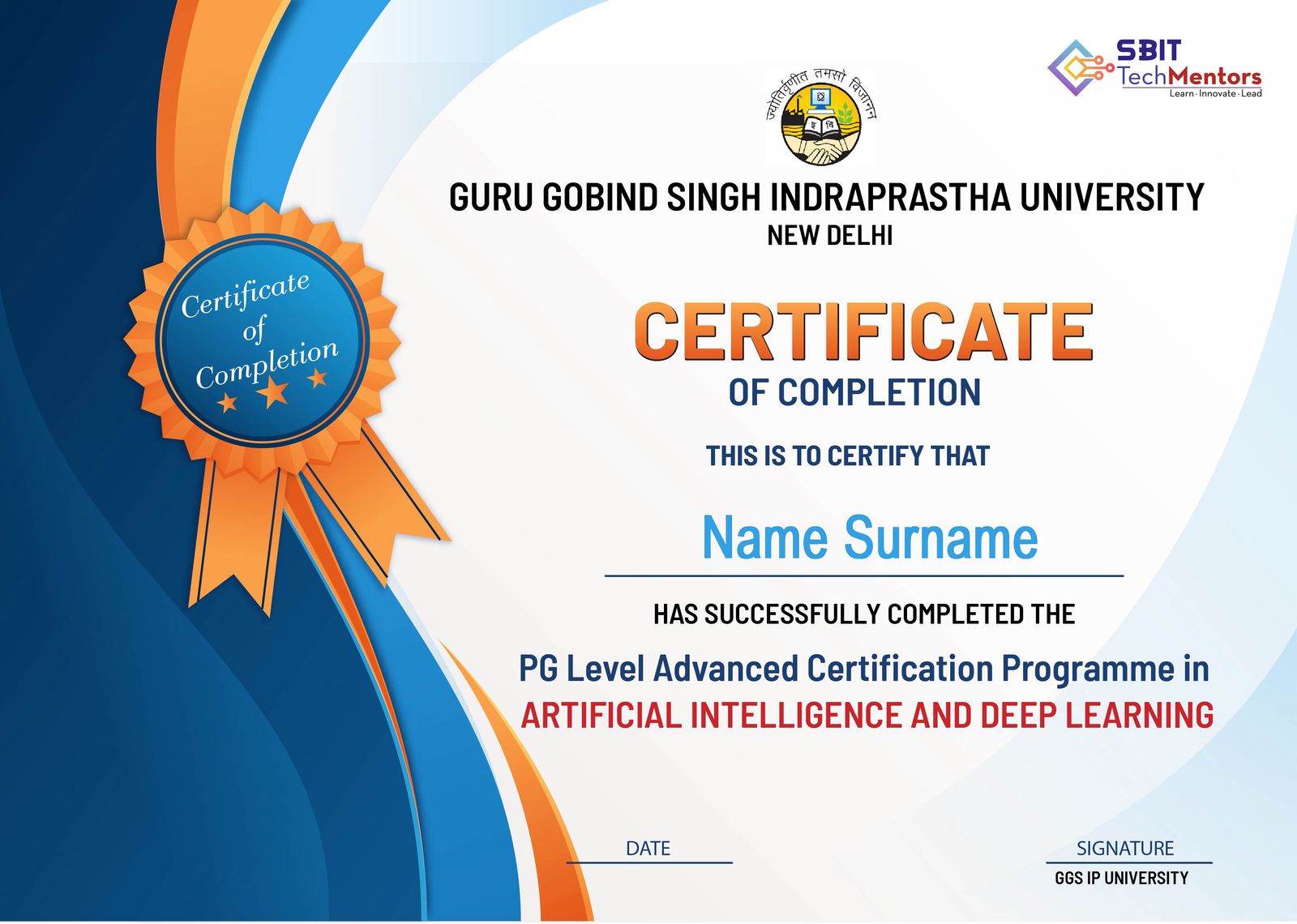
Talk to an Admissions Counselor
Let's start a conversation to ignite the change you desire
Frequently Asked Questions
The programme follows a hybrid learning model, combining traditional classroom instruction with flexible online resources. Classes are led by distinguished faculty, and you will have opportunities to engage in hands-on lab sessions and work on real-world projects, ensuring a well-rounded learning experience. The programme also takes an industry-focused approach, featuring a mentorship board made up of distinguished veterans from both industry and academia, providing guidance and industry insights.
Yes, students who successfully complete a SBIT TechMentors programme will receive a certificate of completion.
The PG Certification Programme in AI/ML is a 9 months program comprising LIVE Classes, Lab Sessions, Campus Visits, Capstone Projects, and Hackathons for fast-track learning.
The programme follows a blended learning approach with offline classes on Saturdays and Sundays, making it ideal for working professionals or those with busy schedules. Classes are conducted in-person by distinguished faculty, providing direct interaction and personalized instruction.
For continuous support outside of class hours, we use Moodle, our Learning Management System (LMS), to provide access to course materials, assignments, and resources. The platform enables easy communication with faculty and peers and ensures that learning is accessible anytime.
In addition to classroom learning, the program places a special emphasis on practical, hands-on experience. You’ll participate in lab sessions where you will build and train AI models using real-world datasets. This approach ensures that theoretical knowledge is solidified through practical application, preparing you for real industry challenges.
To further enhance your learning journey, mentors are available to guide you through the program. Our mentors include experienced professionals from both academia and industry who are dedicated to helping you succeed. You’ll have opportunities to interact with them during dedicated office hours, ensuring you have continuous support throughout your learning experience.
The classes are conducted on Saturdays and Sundays to accommodate working professionals and individuals with busy schedules. This schedule allows students to attend in-person classes while balancing other commitments during the week. Students have the option to attend online classes as well. While the program is primarily conducted offline on Saturdays and Sundays, we provide the flexibility for students to join sessions virtually, ensuring accessibility for those who may not be able to attend in person. This hybrid approach caters to different learning preferences and schedules.
Yes, the programme includes campus immersion as part of the learning experience. While the primary mode of learning is hybrid with classes conducted offline on weekends and online options available, there will be specific campus immersion sessions designed for hands-on activities, workshops, guest lectures, and networking opportunities. These immersive sessions allow students to engage directly with faculty, industry experts, and peers, enriching the overall learning experience.
The SBIT TechMentors Certification in Artificial Intelligence and Deep Learning is ideal for a range of professionals and aspiring individuals interested in deepening their knowledge and expertise in AI. The following groups should consider applying:
- Professionals in Technology and IT: Individuals already working in technology, software development, or data science who wish to expand their skillset to include AI and deep learning to enhance their career prospects.
- Data Scientists and Analysts: Professionals with a background in data science or analytics who want to gain advanced knowledge in AI and deep learning techniques to solve complex problems and work with larger datasets.
- Engineers and Developers: Those with a background in engineering, computer science, or software development who are looking to transition into AI, machine learning, or deep learning roles.
- Researchers and Academics: Those working in research or academia who are keen to apply AI techniques to their work, whether in scientific research, healthcare, or other innovative sectors.
- Entrepreneurs and Startups: Individuals who own or work for AI-driven startups or businesses looking to integrate AI and deep learning into their products, services, or solutions.
- Graduates and Aspiring AI Specialists: Recent graduates or individuals with a basic understanding of computer science or programming who want to specialize in AI and deep learning to launch their career in this rapidly growing field.
- Tech Enthusiasts and Lifelong Learners: Anyone passionate about technology and eager to gain hands-on, practical experience in AI and deep learning, whether to further their current role or explore new opportunities.
- Final-year engineering students: The SBIT TechMentors Certification in Artificial Intelligence and Deep Learning is also a great opportunity for final-year engineering students who are actively looking for placement assistance. This program equips students with the advanced skills needed to excel in the competitive tech job market, particularly in the fields of AI, machine learning, and deep learning.
The fee for the SBIT TechMentors Certification in Artificial Intelligence and Deep Learning is ₹150,000 for the entire course.
For deserving candidates, scholarship options are available to make the programme more accessible. Additionally, we offer EMI (Equated Monthly Installment) and other financing options, providing flexibility in payment to suit your financial needs.
This ensures that students from all backgrounds have the opportunity to benefit from this cutting-edge learning experience.
